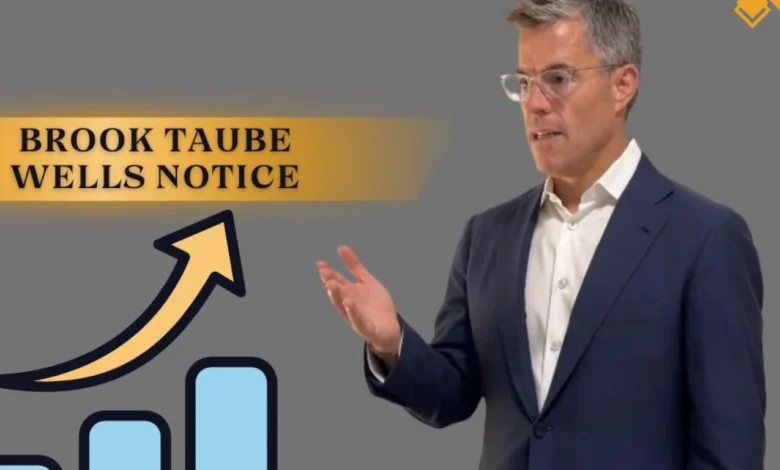Brook Taube Wells Notice: Understanding the Legal Implications

Navigating the complexities of financial regulations can be daunting, especially when faced with a Wells Notice. For individuals like Brook Taube, this document signifies more than just bureaucratic red tape; it carries serious legal implications that could impact one’s career and reputation. Understanding what a Wells Notice entails is crucial for anyone in the finance and investment sectors. As we delve into this topic, you’ll gain insight into why these notices are issued, their potential consequences, and the importance of having robust legal representation during such unsettling times. Buckle up as we unravel the layers behind Brook Taube’s situation and equip you with knowledge to better handle similar circumstances should they arise.
What is a Wells Notice?
A Wells Notice is a formal communication issued by the U.
S. Securities and Exchange Commission (SEC). It represents a critical step in the enforcement process, indicating that the SEC believes there is substantial evidence of wrongdoing.
Essentially, it serves as a warning to individuals or companies under investigation. The notice provides details about potential violations of securities laws.
Receiving one can feel alarming, as it signals that regulatory action could follow. However, it’s important to remember that this does not equate to an official charge; rather, it’s an opportunity for the recipient to respond before any further steps are taken.
The name derives from former SEC Commissioner William J. Wells, who advocated for giving individuals notice before punitive measures were enacted. This approach aims to ensure fairness in challenging allegations against those involved in finance and investment activities.
How Does the SEC Use a Wells Notice?

A Wells Notice is a key tool for the U.S. Securities and Exchange Commission (SEC) in its enforcement activities. It serves as a formal communication indicating that the SEC has found sufficient grounds to believe a violation of securities laws may have occurred.
When the SEC issues this notice, it signals potential charges against an individual or company. The recipient has the opportunity to respond with evidence or arguments challenging these findings before any formal action is taken.
This process allows for transparency and fairness within regulatory frameworks. The intention is not just punitive; it also encourages compliance among market participants by highlighting what constitutes violations.
The SEC uses Wells Notices judiciously, ensuring they are based on thorough investigations. Each case examines various factors, including investor harm and intent behind actions undertaken in securities transactions.
Why Did Brook Taube Receive a Wells Notice?
Brook Taube received a Wells Notice due to allegations surrounding potential securities violations. The SEC flagged his activities during his tenure at a prominent investment firm.
The specifics of the case involve intricate financial transactions that raised red flags. Investigators focused on whether there was misleading information provided to investors or improper disclosures.
Taube’s role in these dealings placed him under scrutiny. The allegations could imply serious repercussions, affecting both his professional reputation and future opportunities in finance.
As investigations unfold, it’s crucial for those involved to understand the implications of such notices thoroughly. They often signify the agency’s intent to take action against perceived misconduct within the securities realm.
Potential Consequences of Receiving a Wells Notice
Receiving a Wells Notice can trigger a range of significant consequences for individuals and companies alike. At its core, it serves as an indication that the SEC is considering enforcement action based on perceived violations.
The first immediate impact often involves heightened scrutiny from regulators. This attention can make securing future funding or business partnerships more challenging.
Moreover, there’s the possibility of reputational damage. A Wells Notice sends ripples through professional networks, which could deter investors or clients wary of association with alleged misconduct.
Additionally, legal costs can escalate quickly as recipients navigate this complex landscape. Engaging experienced counsel becomes essential to mount an effective response against potential charges.
If enforcement actions proceed, severe penalties—including fines and restrictions—could follow. The stakes are high; managing these outcomes requires strategic planning and swift action.
Steps to Take When Receiving a Wells Notice
Receiving a Wells Notice can be overwhelming. The first step is to remain calm and assess the situation carefully. Take the time to read through the notice thoroughly to understand what it entails.
Next, document everything related to the case. Keep records of communications, financial transactions, and any relevant activities that might pertain to the allegations made against you or your entity.
It’s crucial not to respond hastily. Instead, consider gathering information about potential legal counsel experienced in SEC matters. Their expertise will help navigate this complex process effectively.
Reach out for support from trusted colleagues or advisors who may offer insight into similar situations. Sharing experiences can provide clarity and peace of mind during a stressful time.
Prepare yourself mentally for what lies ahead. Understanding the implications will empower you as you move forward with your case strategy.
The Importance of Legal Representation in This Situation
Navigating a Wells Notice can be daunting. Legal representation becomes crucial in this complex landscape. An experienced attorney can provide clarity and guidance throughout the process.
They help decode the intricacies of the allegations, ensuring you understand your rights. Representation also aids in crafting an informed response to the SEC. This is vital for protecting your interests.
Furthermore, legal counsel can negotiate on your behalf with regulatory bodies. They might even uncover mitigating factors that could influence outcomes favorably.
In addition, having a knowledgeable advocate instills confidence during what may feel like an overwhelming time. It allows you to focus on essential aspects of your life while experts handle legal nuances.
The stakes are high when facing potential penalties or reputational damage; securing skilled representation is not just advisable—it’s imperative.
Conclusion
Receiving a Wells Notice can be a daunting experience. For individuals like Brook Taube, it signals serious legal scrutiny from the SEC. Understanding what a Wells Notice entails is crucial for anyone in this situation.
The implications of receiving such a notice can be significant. It may lead to potential enforcement actions that could impact your professional and personal life. Therefore, knowing how the SEC employs these notices helps clarify their purpose and severity.
Brook Taube’s case highlights the importance of staying informed about regulatory actions that affect one’s career and reputation. The reasons behind his Wells Notice point to complex issues within financial practices that demand careful examination.
For those who find themselves facing similar circumstances, it’s vital to understand the necessary steps to respond effectively. Seeking out experienced legal representation can make all the difference in navigating this intricate process.
Being proactive in addressing these challenges not only aids in managing immediate concerns but also sets up an individual for better outcomes moving forward brook taube wells notice. Understanding one’s rights and options is essential when dealing with such serious allegations, marking an important step toward resolution.




